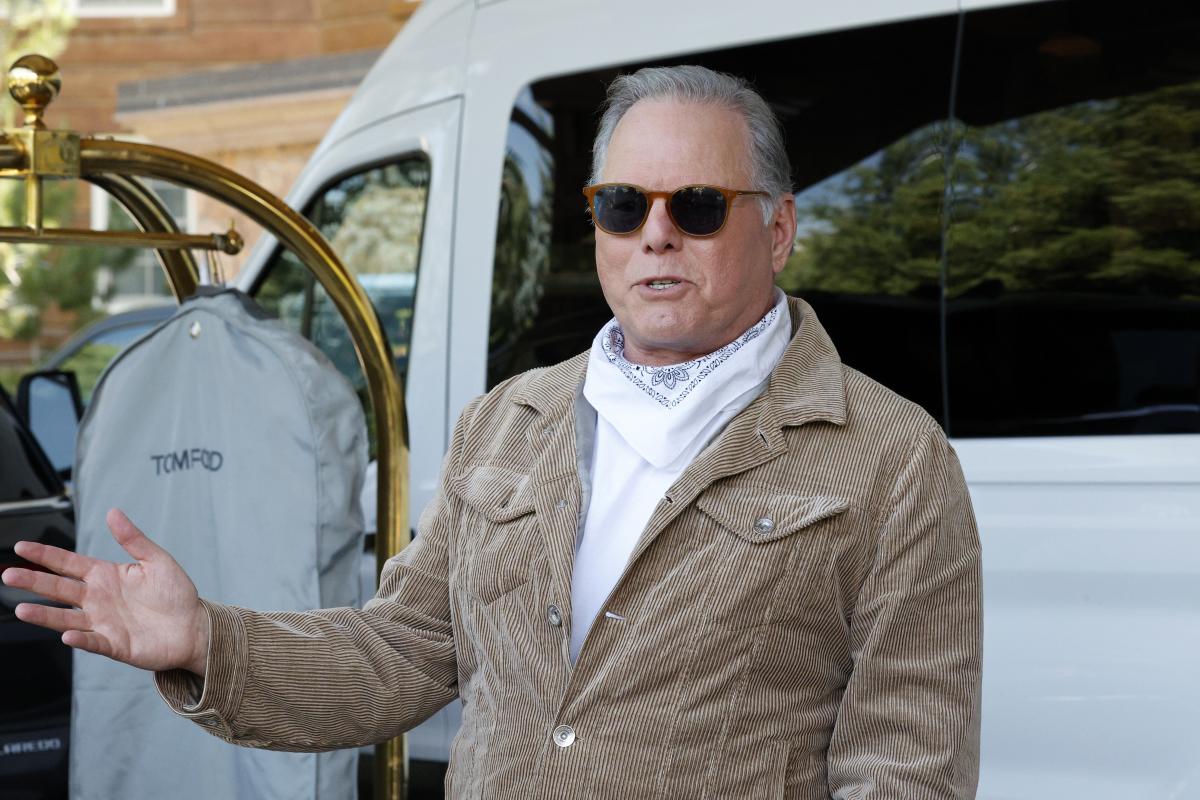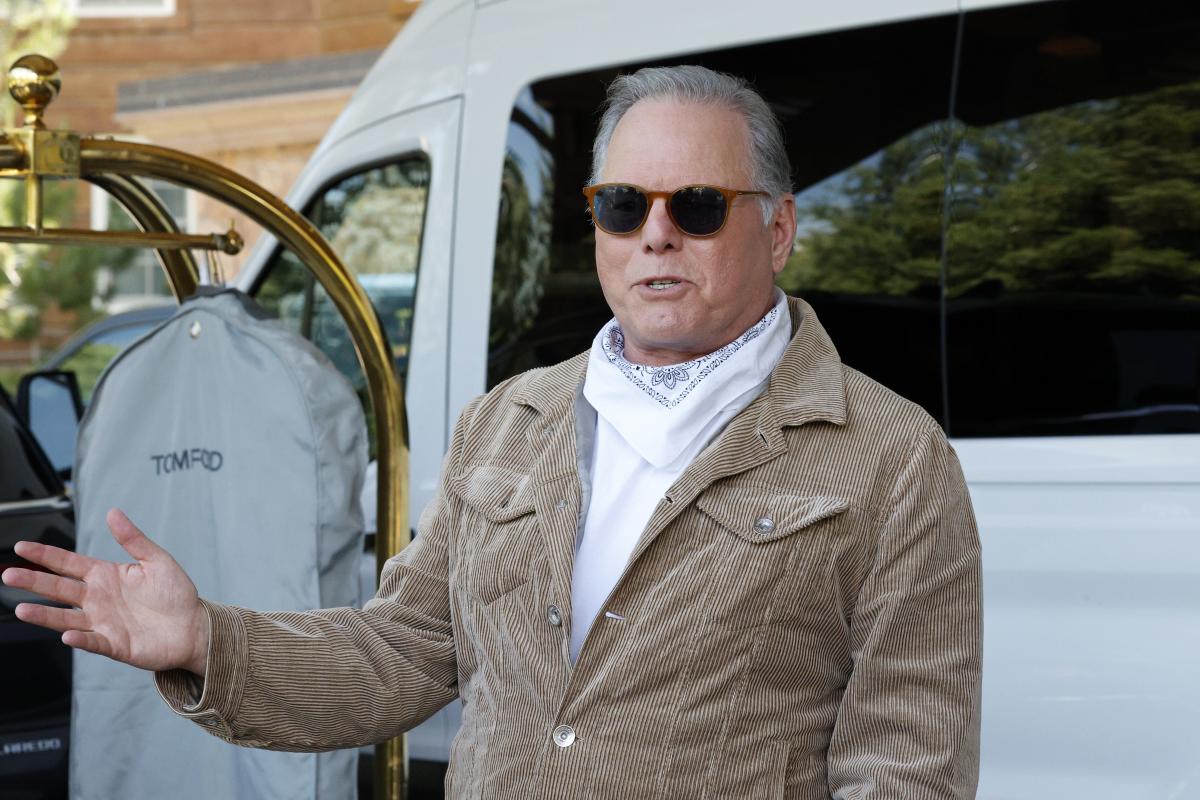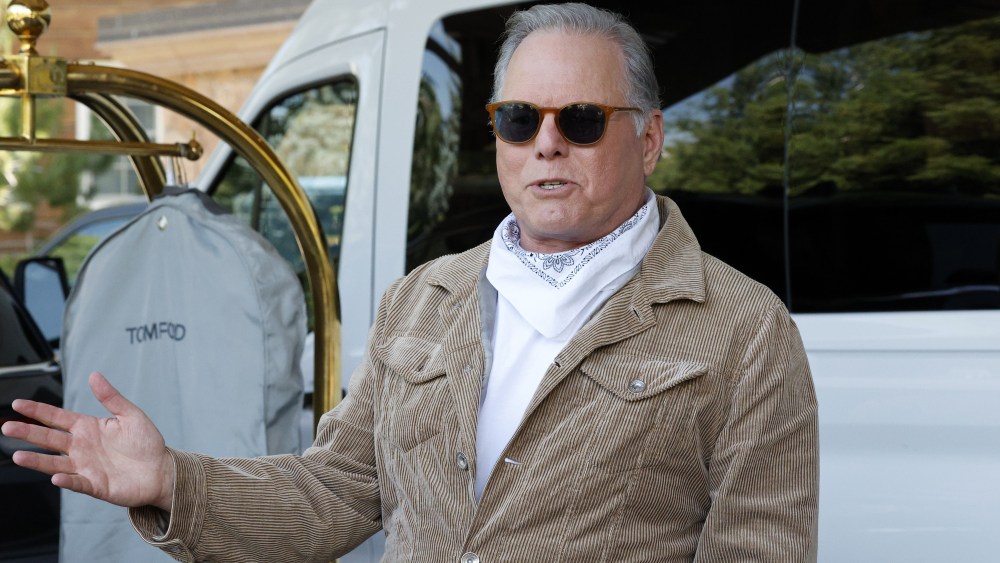“The High-Stakes Game of Corporate Compensation: Warner Bros. Discovery CEO David Zaslav’s Pay Package Soars to Nearly $52 Million”

In the world of big business, where profits are the ultimate scoreboard, it’s no secret that top executives are often handsomely rewarded for their efforts. And in the latest chapter of this high-stakes game, Warner Bros. Discovery CEO David Zaslav has emerged as one of the biggest winners of all. According to a recent report by Variety, Zaslav’s pay package has skyrocketed to nearly $52 million in 2024, marking a 4% increase from the previous year.

Shareholder Perception and Satisfaction

David Zaslav, the president and CEO of Warner Bros. Discovery (WBD), has seen his 2024 pay package rise by just over 4% to $51.9 million, as detailed in the company’s 2025 proxy statement. This figure, though still substantial, represents a more modest increase compared to the 26.5% jump seen in 2023. Shareholders, who have been scrutinizing executive compensation amidst economic uncertainties and competitive pressures in the media industry, may view this as a balanced approach. Zaslav’s overall compensation of $51.9 million includes a base salary of $3 million, stock awards worth $23.1 million, and bonus compensation of $23.9 million, with additional miscellaneous compensation of $1.9 million.
Shareholders are likely to evaluate the alignment of Zaslav’s compensation with the broader goals of enhancing shareholder value. The executive compensation committee’s decision to reward Zaslav with a 115% payout of his strategic metrics bonus, reflecting a clear over-delivery on strategic goals, aligns with shareholder interests. However, the slight increase compared to the previous year might be seen as conservative, especially given the market’s volatility and the need for strong leadership in turbulent times. This approach could be viewed positively by shareholders as a sign of fiscal prudence and a focus on long-term growth rather than short-term gains.
Comparative Analysis of WBD Executives
C-Suite Compensation Overview
The compensation details for Warner Bros. Discovery’s C-suite reveal a diverse range of pay packages that are carefully calibrated to reflect each executive’s role and contributions:
- Gunnar Wiedenfels (CFO): Wiedenfels received $17 million in 2024, maintaining the same level as the previous year. His compensation includes a base salary of $1.3 million, stock awards of $10.7 million, and bonuses of $5 million.
- Bruce Campbell (Chief Revenue and Strategy Officer): Campbell’s 2024 compensation increased by 8% to $19.8 million, reflecting a base salary of $1.5 million, stock awards of $9.2 million, and bonuses of $9.1 million.
- J.B. Perrette (Global Streaming and Games CEO and President): Perrette saw a slight decrease in his compensation, down 2% to $19.7 million, with a base salary of $1.4 million, stock awards of $9.1 million, and bonuses of $9.2 million.
- Gerhard Zeiler (International President): Zeiler’s compensation increased by over 11% to $14.8 million, including a base salary of $1.2 million, stock awards of $7.2 million, and bonuses of $6.4 million.
Alignment with Company Goals
The compensation structures for WBD’s C-suite executives reflect a strategic alignment with the company’s goals. Each executive’s pay is tied to specific performance metrics, with a significant portion of the total compensation comprising stock awards and bonuses contingent on the achievement of strategic and financial targets. For instance, the CFO’s compensation is closely aligned with financial stability and growth targets, while the Chief Revenue and Strategy Officer’s pay is tied to revenue growth and strategic initiatives designed to enhance the company’s market position.
J.B. Perrette’s slightly reduced compensation, despite operating in a high-growth area like streaming and games, may indicate a strategic decision to balance investment in growth initiatives with cost management. Gerhard Zeiler’s increased compensation underscores the importance of the international market to WBD’s growth strategy, highlighting the need for strong international expansion.
Industry Context and Insights
Comparison with Other Media Giants
David Zaslav’s 2024 compensation of $51.9 million places him in the upper echelon of media industry CEOs, but it is noteworthy for its relatively modest increase from the previous year. Compared to the compensation of CEOs at other major media and entertainment companies, Zaslav’s package is in line with industry standards. For instance, Disney CEO Bob Chapek received $18.3 million in 2024, while Netflix CEO Ted Sarandos received $38.2 million, indicating a spectrum of compensation practices within the industry. Zaslav’s pay, while substantial, reflects the unique challenges and opportunities at WBD, a company that has undergone significant transformation and integration in recent years.
Trends in Media Executive Compensation
Broadly, the media industry has seen a trend of consolidating executive compensation packages around performance metrics, with a focus on stock awards and performance bonuses as a way to align executive interests with those of shareholders. The rise in base salaries and stock awards, particularly for those in strategic roles, reflects the industry’s reliance on these key individuals to navigate through periods of rapid technological change and fierce competition. WBD’s approach to executive pay, with a clear focus on strategic metrics and performance-based bonuses, is reflective of broader industry trends and the need to retain and motivate top talent in a highly competitive market.
Future Outlook and Strategies
Projection of Future Pay Trends
Looking forward, the trajectory of Zaslav’s pay is likely to be influenced by several factors, including the company’s financial performance, market conditions, and competitive dynamics within the media sector. Given the current economic climate and the ongoing integration challenges at WBD, any substantial increase in his compensation would need to be justified by clear performance metrics and strategic achievements. Investors are likely to scrutinize future compensation adjustments carefully, expecting a clear link between pay and performance. In light of recent performance and strategic goals, a moderate to conservative increase is anticipated, with a focus on incentivizing long-term growth and operational excellence.
Strategic Goals for 2025 and Beyond
The strategic goals set for 2025 and beyond will play a crucial role in guiding Zaslav’s compensation. These goals are likely to include continued expansion into international markets, the successful integration of streaming services, and the development of new content that drives subscriber growth and revenue. Zaslav’s compensation will be closely tied to these objectives, with bonuses and stock awards potentially increasing if these goals are met. The executive compensation committee will focus on metrics such as free cash flow, subscriber growth, and market share, all of which are critical to WBD’s long-term vision and shareholder value creation.
Regulatory and Compliance Considerations
Compliance with SEC Rules
Warner Bros. Discovery’s compensation practices are designed to comply with Securities and Exchange Commission (SEC) regulations and guidelines, ensuring transparency and adherence to best practices in corporate governance. The company must disclose detailed information about executive compensation, including the rationale behind bonuses, stock awards, and overall pay structures. The 2025 proxy statement outlines the specifics of Zaslav’s compensation, detailing the rationale behind his performance metrics and the strategic goals that guide his pay. The SEC requires extensive disclosure and justification for such large compensation packages to ensure that executives’ interests are aligned with those of shareholders.
Transparency and Accountability
Warner Bros. Discovery places a strong emphasis on transparency and accountability in its executive compensation practices. The 2025 proxy statement, which details the compensation for Zaslav and other key executives, is a demonstration of the company’s commitment to transparency. The disclosure of performance metrics, such as the 115% payout for strategic metrics, underscores the alignment between executive performance and shareholder value creation. This transparency not only meets regulatory requirements but also builds trust with investors, who are keen to see clear links between executive compensation and the company’s performance.
Conclusion
In conclusion, the recent announcement that Warner Bros. Discovery CEO David Zaslav’s 2024 pay has risen 4% to nearly $52 million is a stark reminder of the ever-growing wealth gap between corporate leaders and the average worker. As highlighted in the article, this significant increase in compensation comes despite the company’s struggles to integrate its vast media assets and navigate the competitive streaming landscape.
The significance of this development cannot be overstated. It underscores the need for greater transparency and accountability in corporate governance, particularly in the wake of the pandemic and its devastating impact on the global economy. As the media landscape continues to evolve, it is crucial that CEOs like Zaslav are held to the highest standards of fiscal responsibility and social conscience. Furthermore, this development serves as a stark reminder of the widening income inequality that plagues our society, and the urgent need for policymakers to address this issue.
As the media landscape continues to shift and the streaming wars intensify, it will be essential for regulators and shareholders to keep a close eye on CEO compensation and ensure that it is aligned with the company’s performance and values. The question remains: can we afford to continue rewarding CEOs with astronomical salaries while the majority of the workforce struggles to make ends meet? The answer lies in the hands of those who hold the power – will they choose to prioritize profit over people, or will they opt for a more equitable and sustainable path forward?
